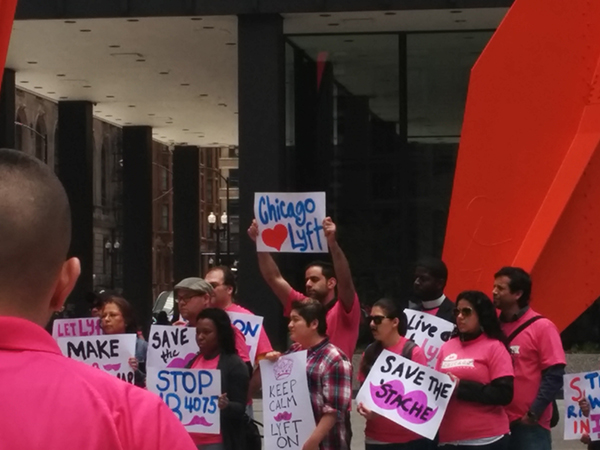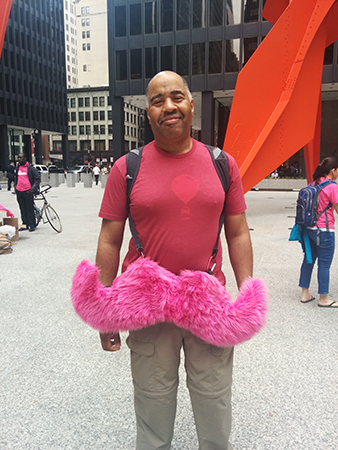Rideshare drivers rally to defend their jobs
Drivers and supporters of rideshare company Lyft rallied earlier this week on Chicago’s Federal Plaza to urge community members to oppose House Bill 4075, which would restrict ridesharing at the state level. The Illinois Senate approved the bill this week. Thanks in part to the efforts of Illinois Policy Action, the most anti-competitive aspects of...
Drivers and supporters of rideshare company Lyft rallied earlier this week on Chicago’s Federal Plaza to urge community members to oppose House Bill 4075, which would restrict ridesharing at the state level. The Illinois Senate approved the bill this week.
Thanks in part to the efforts of Illinois Policy Action, the most anti-competitive aspects of the original version of the bill, which included a ban on drivers dropping off or picking up passengers from commercial airports, an entirely arbitrary limit on the age of cars that could be used and price controls have been removed from the legislation.
But the latest version of the bill is far from perfect, and would still harm the drivers who make a living by providing ridesharing services. That’s because it creates a tiered system that harms the flexibility allows rideshare drivers to set their own hours and work as much or as little as they need.
The bill would require drivers to go through an extensive licensing process if they work on anything more than a part-time basis. To work more than 18 hours in a week, they would need to first obtain a special chauffeur’s license. In Chicago, this would mean being at least 21 years of age, taking a course at the Public Chauffeur Training Institute and passing a set of written and physical exams – a time consuming set of regulations on people who have already been certified to drive through basic licensing and who do so for a living. No safety interest is served through the part-time versus full time distinction; the clear purpose of this rule is to raise barriers to entry to prevent competition against the taxi industry, which lobbied for the bill.
Darryl Powell, one of the drivers protesting at the rally, told me that relies on his job as a Lyft driver to make ends meet. Powell and his wife started using Lyft as a way to support themselves eight months ago when their family fell on hard times. But, as Powell said, “If [HB4075] comes to a vote as is, it would essentially shut down ridesharing.”
“It’s really been one of the best jobs I’ve ever had … you work when you want to work,” he said, be it only a few hours or full time. But HB4075’s work limit would prevent drivers like Darryl and his wife from being able to fully support themselves. Many rideshare drivers are recent immigrants getting their first jobs in a new country. Many others are college students simply trying to put themselves through school. But despite their different backgrounds and experiences, they all came together on Wednesday to speak up for their right to earn a living.
The city of Chicago has also proposed an ordinance to regulate these services. The latest city proposal is far from ideal, but it is certainly the lesser of two evils. It limits a company’s drivers to an average – not a hard limit – of 20 hours a week before mandating a chauffeur’s license, which gives drivers greater flexibility and means more cars will be available at the busiest times of year. Allowing the city rather than the state to regulate ridesharing would also keep policy decisions about local transportation at the local level. This way, cities can work out the policies that best suit their needs instead of having a one-size-fits-all model (and a poorly designed one at that) imposed on the entire state.
Ridesharing companies such as Uber and Lyft are not just faceless corporations. They provide jobs for real people in Illinois who might otherwise struggle to make ends meet. They employ citizens whose taxes support public services. And, as citizens, they’re the ones who legislators are supposed to serve. When these citizens feel threatened enough that they rally for their jobs – not asking for any favors but simply the right to earn a living from customers who love their services – Illinois legislators need to do a better job of listening.


